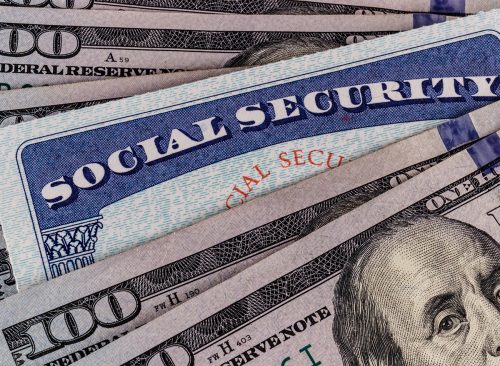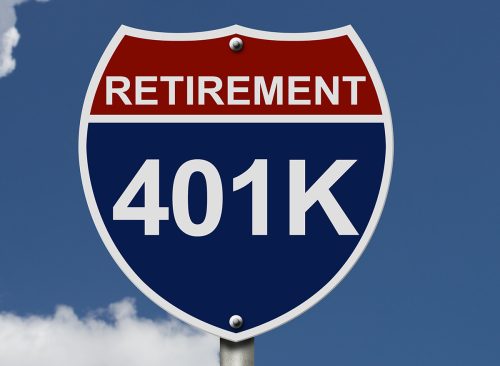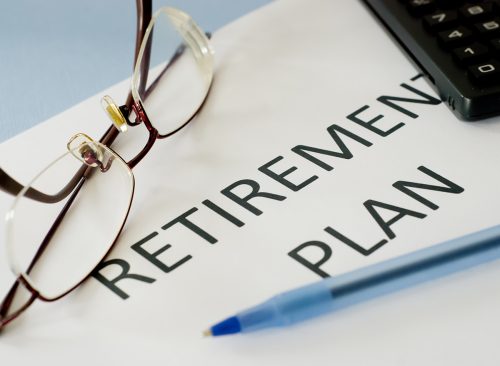
Good financial planning can make the difference between a stressful retirement and one where you can actually relax and feel secure in the future. Unfortunately, many seniors make serious mistakes with their finances that can have far-reaching consequences. “Over the past five years, I’ve heard the same sage wisdom: if only I knew then what I know now,” Pam Krueger, founder and CEO of Wealthramp, tells AARP. Here are 15 financial mistakes seniors should avoid.

Having no savings can make life after retirement very difficult. “Life events kept them from saving, and now those decisions made back in their 40s, 50s and even as early as 30s are really biting them,” Kevin Chancellor, CEO of Black Lab Financial tells AARP. “It’s making it hard for them to live a good quality life with the cost of things so much higher.”

Many seniors don’t adjust their lifestyle after they stop working. “Among the biggest mistakes retirees make is not adjusting their expenses to their new budget in retirement,” according to the Louisiana Office of Financial Institutions. “Those who have worked for many years need to realize that dining out, clothing and entertainment expenses should be reduced because they are no longer earning the same amount of money as they were while working.”

“Retirees need to understand that the period of their retirement can be upwards of 30 years, and they need their portfolio to support them throughout this entire period,” certified financial planner David Walters tells Go Banking Rates. “So, while it is important to keep the risk of the portfolio in check, some allocation to stocks is warranted.”

Watch out to not accidentally pay too much in taxes. “Having multiple retirement accounts may sound ideal, but remember that each retirement account is taxed differently,” says LOFI. “If you do not find a way to take out your money from your assets and your accounts, you could end up paying more taxes than you actually have to.”

Taking social security too early is often just a bad idea as there is no going back. “They took it too early, and now they can’t go back and change it,” Chancellor tells AARP “That’s the thing about Social Security. That decision is final. You don’t get any do-overs.”

Be careful not to fall for frauds and scams. “Unfortunately, retirees are the most targeted group for scams,” says LOFI. “Be sure to consult an advisor prior to making any investment or laying out a large amount of cash on anything. Scammers will prey upon your desire to increase your savings.”

Don’t be afraid of the stock market. “Being in the stock market doesn’t mean your entire nest egg should be invested in one company or industry,” says AARP. “A diversified portfolio of low-cost funds that provide access to different stocks and bonds can protect you if one area of the market suffers.”

Everyone loves a doting grandparent—but don’t spend so much on kids and grandkids at the expense of your own retirement. “Another big regret of clients is paying children’s bills, gifting them money and helping their kids get back on their feet,” Chancellor tells AARP. “They regret spending so much money on their children to help them get ahead when they should be funding their own retirement.”

Try not to touch your 401K. ”As you think about loans from retirement plans the first thing we say is there anywhere else you might be able to borrow from?” vice president at Fidelity Investments Meghan Murphy tells Kiplinger. “We think through the importance of having an emergency fund. But, of course, if that’s not available, is there any other place that you’re able to draw from? Things you might want to think about is if it’s a medical emergency, do you have a health savings account that you might be able to take money from.”

Don’t invest in just one thing. “Where possible, allocations to any single company should be minimized in favor of a well-diversified portfolio with exposure to many companies and asset classes,” Walters says.

Be careful about taking advice from people who aren’t qualified—it could cost you. “They never took the time to consider the importance of who they were listening to,” Krueger tells AARP. “They had no idea if it was good advice.”

Avoid becoming house rich but cash poor. “While houses appreciate in value, but the ongoing costs of taxes, utilities, services, repairs and maintenance can be too much for a retiree to handle,” says LOFI. “By the time you retire, adult children have probably moved out of the house. If so, consider the benefits of downsizing by selling your house and moving to a smaller home that is more affordable. You could also invest the remaining money on more predictable income in order to support your new retirement lifestyle.”

Make sure to update your investment strategy. “Once you start your retirement, it’s beneficial to review your strategy,” executive director of the Indexed Annuity Leadership Council Jim Poolman tells Go Banking Rates. “Revisit your retirement plan every few years to make sure your savings reflect your needs, and adjust for market conditions.”

Many seniors haven’t prepared for long-term care. “This does not mean you need to run out and buy insurance right now,” certified financial planner Marguerita M. Cheng tells AARP. “But it’s important to be proactive, so you’re the one deciding, and your family isn’t the one deciding for you later.”

Be careful not to spend all your time at home alone. “Two of the worst things you can do after retiring is to be socially isolated and physically inactive,” according to LOFI. “It’s important to maintain social connections and frequently enjoy the company of friends and family, or join social groups and activities. The mind is like a muscle – if it isn’t exercised, its abilities will fade. Reading books, solving puzzles and just simply engaging in conversation are all great ways to keep the brain sharp and functioning well into later life.”













